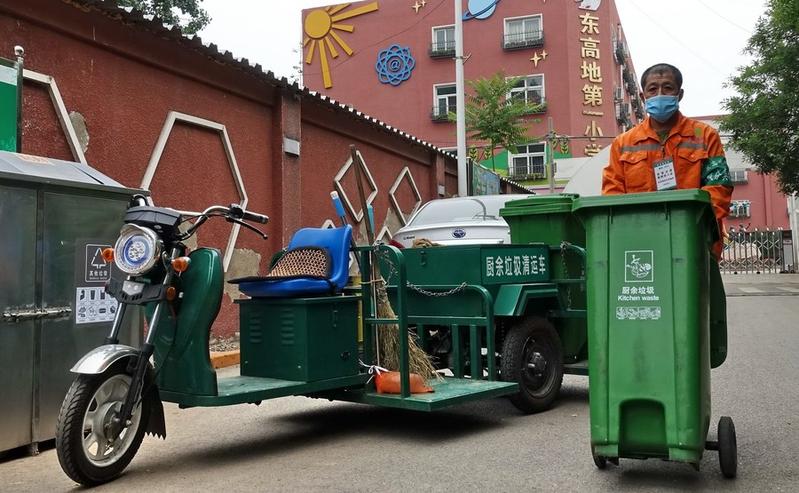



Beijing has seen good results since garbage sorting began to be implemented three months ago, with more waste classified as kitchen trash, authorities said Monday.

Residents play an educational garbage sorting game during a waste management awareness campaign at a residential community in Dongcheng District of Beijing, capital of China, May 23, 2020. [Photo/Xinhua]
The daily amount of household kitchen garbage in July stood at 1,764 tonnes, 470 percent higher than the daily average in late April in the city, said Zhang Yan, deputy director of the city's commission of urban management.
Meanwhile, the daily amount of other waste -- the trash besides the categories of kitchen, recyclable and hazardous -- dropped 26 percent year on year to 19,960 tonnes in July, Zhang said at a press conference.

A worker transfers garbage sorting bins at Donggaodi subdistrict of Fengtai District in Beijing, China, May 22, 2020. [Photo/Xinhua]
According to Zhang, Beijing has 44 household waste treatment facilities, with a total designed treatment capacity of 32,711 tonnes per day.
Starting May 1, Beijing joined a club of Chinese cities to carry out mandatory garbage sorting in fresh efforts to protect the environment.
With the city's newly-revised household waste regulation taking effect, Beijing requires people to classify household waste into four categories: kitchen, recyclable, hazardous and other waste.
Wen Tianwu, deputy chief of the municipal comprehensive law-enforcing bureau of city administration, said by the end of July, nearly 7,000 violations related to household garbage classification had been investigated and penalized.
